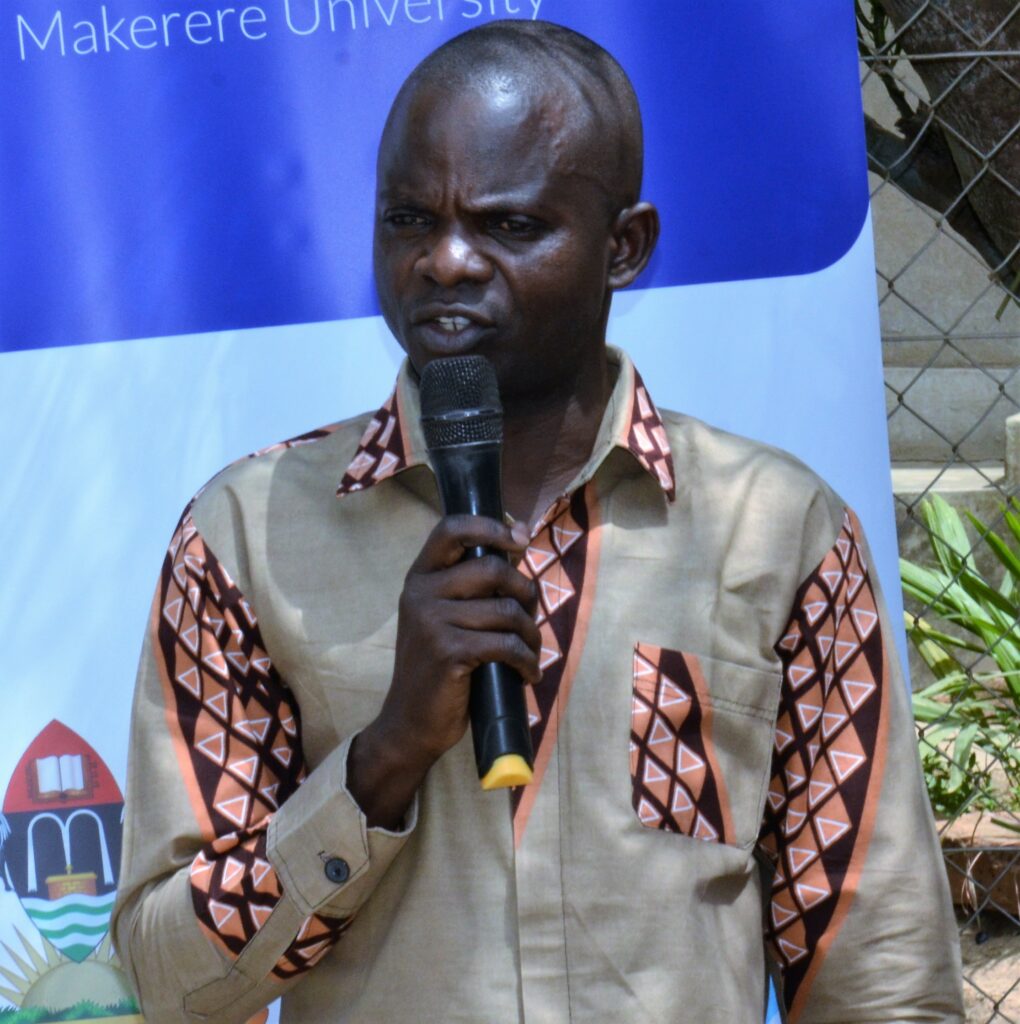By Robert Adiga
The Infectious Disease Institute (IDI) has handed over the revamped regional animal laboratory for West Nile.
The well renovated and equipped regional laboratory costing sh413m located in Arua City was handed over on Thursday in the presence of district veterinary officers and other technical staff from the districts of West Nile.
According to the IDI the porous borders of South Sudan and Democratic Republic of Congo (DRC) are exposing the West Nile sub-region to infectious diseases for both animals and humans.
Majority of the districts in West Nile stretching from Pakwach, Nebbi, Zombo, Arua district, Arua City, Maracha, Koboko, Yumbe, Moyo to Adjumani borders both DRC and South Sudan where there is less control on movements of animals and people especially those crossing through the undesignated points.
Dr Andrew Kambugu, the executive director of Infectious Disease Institute, Makerere University, while speaking at the launch of the regional Animal Laboratory in Arua City, says as the region borders the two countries with a huge number of refugee populations the Laboratory would enable quick tests done on animals so that action could be taken faster instead of transporting samples to Entebbe.
“In order to avert outbreaks like Anthrax and other neglected tropical diseases, we need to strengthen surveillance in the border districts. We have a running global health security and strengthening health systems programs. This Laboratory will enable us to work and control diseases that may come from the neighboring countries easily,” Dr. Kambugu said
He says, the region has in the past experienced outbreaks of Plague, Anthrax, Yellow Fever, West Nile Virus and Rift Valley Fever in humans. And Anthrax, brucellosis, Rift Valley Fever and Rabies in animals with their history traced from either South Sudan or DR. Congo.

Dr Richard Akule, the District Veterinary Officer (DVO) for Moyo said “With this Laboratory, we need to promote trade in livestock products because we have a great number of livestock both locally and at regional trade. We need to ensure that there is food safety in the region because we can do a lot of export of beef, milk and other products.”
Akule added that, with the presence of refugees in the region, a number of livelihood partners support the refugees with animals and in some cases introduced some livestock species that are not familiar with the terrain of the region and this could pose a danger in terms of disease outbreak necessitating the presence of the lab.
He also calls for capacity building for the lower staff with whom they work so that they can appreciate and make good use of the lab assuring that the laboratory will serve the purpose for which it was revamped.
Francis Kakoza, the deputy head of department animal health IDI says, they have done part of their work by mobilizing resources and renovating the facility and challenged the various district leadership to allocate resources for the operationalization of veterinary services in their respective districts for effective usage of the regional laboratory.
“I also want to thank the different district leaders for the cordial relationship we had with them while undertaking the various health interventions in the region and we pledge to continue supporting the region with whatever we can to ensure health population of both animals and humans”, Said Kakoza
Jimmy Alli, the principal assistant secretary Logiri Sub County in Arua district who represented the Chief Administrative Officer says, there is a direct linkage between human health and animal health therefore need to effectively use the laboratory to address the diseases in animals.
He also calls for the need to have an operationalization and maintenance strategy to avoid cases of the lab going to the waste.
“The lab should seek to address the issue of fake and counterfeit animal drugs and inputs in the region”, Said Alli
Charles Okuyo Bosco, the Principal Veterinary Inspector, Ministry Agriculture says, West Nile region is rich in animal related diseases like the anthrax, Rift valley disease among others therefore need to work together to put the revamped regional lab into full use.
He also committed the full support of the ministry in terms of capacity building for the veterinary staff in the districts.
According to him, there are currently eight regional animal labs in the country, some of which he said are not having the required capacity to carry out tests.
About the Laboratory.
The United Kingdom Government established a Fleming Fund (FF) Program to respond to the global threat posed by drug resistant infections. The Fleming Fund Country Grant 2 program through Mott MacDonald in Uganda aims to strengthen surveillance of antimicrobial resistance (AMC), antimicrobial use (AMU) and antimicrobial consumption (AMC) in animal, human and environmental health sectors through a one health approach.
As a result, IDI secured funding of Shs413 million to renovate, equip the regional Animal laboratory where several tests will be carried out in the West Nile Sub-region.
From 2018 to September 2021, cases of Rabies were reported in Arua, Moyo,Adjumani and Yumbe districts.
In 2019, Uganda Virus Research Institute recorded outbreaks of Anthrax in Madi-Okollo, Terego and Yumbe districts. Also in 2019, Yellow Fever outbreaks were reported in Moyo and Maracha districts.
Still in 2019, cases of West Nile Virus were recorded in Moyo district. And again from 2019 to 2021, cases of Brucellosis and Rift Valley Fever were reported in Obongi, Moyo, Terego, Madi Okollo and Yumbe districts.





